Tell me if this sounds like you:
You kick off your day with a big to-do list, hoping to get it all done. But by nighttime, you realize you’ve barely scratched the surface.
You go to bed, wake up the next day, and the cycle continues.
We’ve all had these days. It’s especially challenging when you’re working remotely!
Distractions seem to pop up everywhere, now more than ever. Whether it’s the flood of emails and texts, getting lost in social media scrolling, or even indulging in TV show marathons.
The unfortunate thing is the less you focus on the task at hand, the more your productivity suffers. Productivity thrives on deep focus, so it’s essential to have tools for honing your concentration.
We delved into many books on enhancing focus, and we’ve curated a list of the top ten. You can trust that these authors are experts in helping you enhance your concentration skills.
Ready to dive in and learn from the experts? 📚
- Top 10 Books on Focus to Help Improve Your Concentration
- 1. Focus: The Hidden Driver of Excellence by Daniel Goleman
- 2. The 80/20 Principle: The Secret to Achieving More with Less by Richard Koch
- 3. Free to Focus: A Total Productivity System to Achieve More by Doing Less by Michael Hyatt
- 4. The Productivity Project: Accomplishing More by Managing Your Time, Attention, and Energy by Chris Bailey
- 5. Getting Things Done: The Art of Stress-Free Productivity by David Allen
- 6. First Things First by Stephen Covey
- 7. Deep Work by Cal Newport
- 8. Essentialism by Greg McKeown
- 9. Thinking Fast and Slow by Daniel Kahneman
- 10. Your Brain at Work: Strategies for Overcoming Distraction, Regaining Focus, and Working Smarter All Day Long by David Rock
- Take Action and Improve Your Focus
Top 10 Books on Focus to Help Improve Your Concentration
1. Focus: The Hidden Driver of Excellence by Daniel Goleman
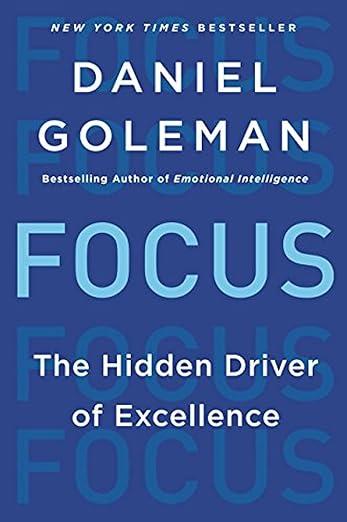
Honestly, I wish I’d found this book sooner.
Goleman talks about the three forms of focus (inner, other, and outer focus) and explains how applying each can flip you from a procrastinating enthusiast to a high achiever of goals.
His tips for boosting attention in a noisy world, becoming more self-aware, and increasing your emotional intelligence will seriously up your focus game, helping you excel in all areas of life.
He’s got the stats, solid research, and some fascinating case studies from different fields to back up his points. Plus, he takes the time to break down what sets average achievers apart from high achievers.
And don’t miss Goleman’s insights on clever habits in the book. He talks about mindfulness meditation, focused prep, and positive vibes. These personal development tips can help you build healthy habits, learn new skills, and maintain a high level of performance over sustained periods.
Follow these ideas, and you’ll see a big impact on your focus and concentration.
2. The 80/20 Principle: The Secret to Achieving More with Less by Richard Koch
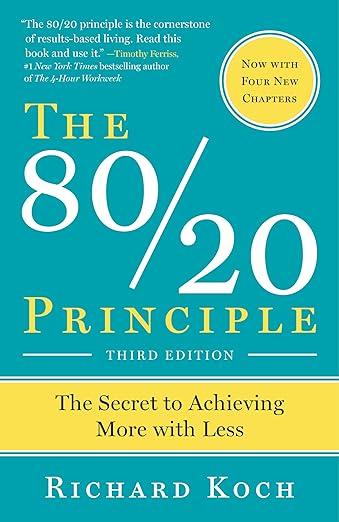
Are the things you spend 80% of your time on worth your efforts?
Find that out in this book on focused success. When it comes to refining your goals and priorities, this text is your bible.
Richard Koch points out the 80/20 principle, which is relevant to the Pareto Principle in Economics (which states that 80% of output comes from 20% of input).
He backs up this age-old economic concept and outlines a practical way to prioritize and increase productivity.
This book reveals the surprisingly simple truth that 80% of your time is probably wasted on tasks that don’t matter. But when you focus on the 20% that counts, you unlock the potential for tremendous success, a focused life, and happiness.
Ultimately, you’ll learn to spot vital tasks for your personal life, work smart, manage your time, shift your mindset, and prioritize tasks efficiently.
3. Free to Focus: A Total Productivity System to Achieve More by Doing Less by Michael Hyatt
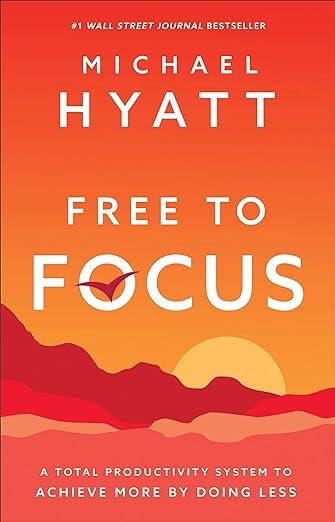
Ever wrapped up a task faster than you expected?
Michael illustrates why it happens and how to stabilize such a culture for every facet of your own life. In the book, he mentions secrets that have repeatedly proven to get more done with less time and effort.
He says the secret to being productive is sticking with the right tasks, even when digital distractions pop up, instead of juggling too many things simultaneously.
He illustrates a three-step system to boost your self-control:
- STOP: Pause to figure out what you are working on. You can do this in three steps: formulate, evaluate, and rejuvenate
- CUT: Remove the tasks that are not of high importance to your productivity and do either of these three things: eliminate, automate, or delegate
- ACT: This is when you execute your essential tasks while regaining focus and finding ways to get them done with less stress and in less time. You can achieve this in three ways: consolidate, designate, and activate
Distraction is an enemy of productivity, and implementing the strategies in this book promises to improve your focus and productivity.
4. The Productivity Project: Accomplishing More by Managing Your Time, Attention, and Energy by Chris Bailey
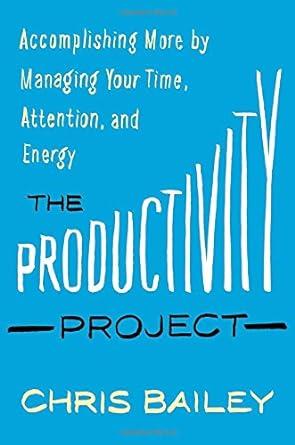
Ever wished for a hands-on guide to sharpen your focus? This book is it.
Chris dedicated a year to researching and experimenting before writing The Productivity Project. He carefully documented what worked best for him, from behaviors to environments, to improve his productivity.
In the book, Chris Bailey shares some useful productivity tips, like smart caffeine use, spending less time on important tasks, working more mindfully by slowing down, ditching unimportant stuff, and embracing imperfection. He also suggests a handy 20-second rule for handling distractions.
Bailey’s approach blends science, real-life testing, and expert advice to help you better handle your time, attention, and energy.
5. Getting Things Done: The Art of Stress-Free Productivity by David Allen
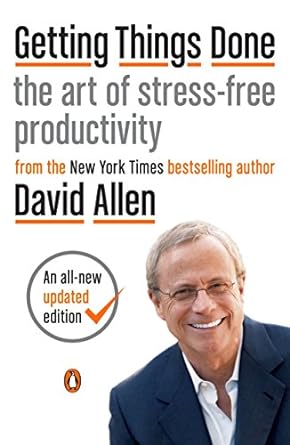
Ever struggle with sorting out your most important tasks?
Getting Things Done by David is the answer! He shares tried-and-true techniques to help you get your priorities straight.
The book delves into three major aspects: mastering the art of getting things done, achieving stress-free productivity, and harnessing the power of key principles.
Over time, Getting Things Done has become known as the GTD productivity system, even earning the nickname “The Bible of Productivity.“
GTD helps you keep track of your current tasks and plan what’s next. Do you want to get started with GTD? You can use ClickUp’s Getting Things Done template:

6. First Things First by Stephen Covey
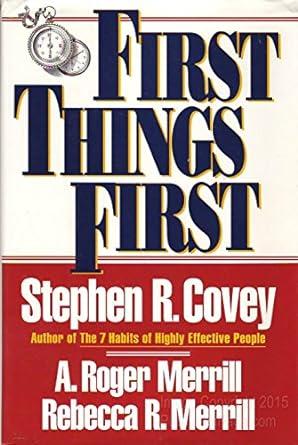
What does putting first things first mean to you?
According to Dr. Stephen Covey,
“Putting first things first means organizing and executing around your most important priorities. It is living and being driven by the principles you value most, not the agendas and forces surrounding you.”
He illustrates a follow-up on what Dwight D. Eisenhower, the 34th President of the United States, introduced in 1954 during a speech.
Dwight said, “I have two kinds of problems, the urgent and the important.”
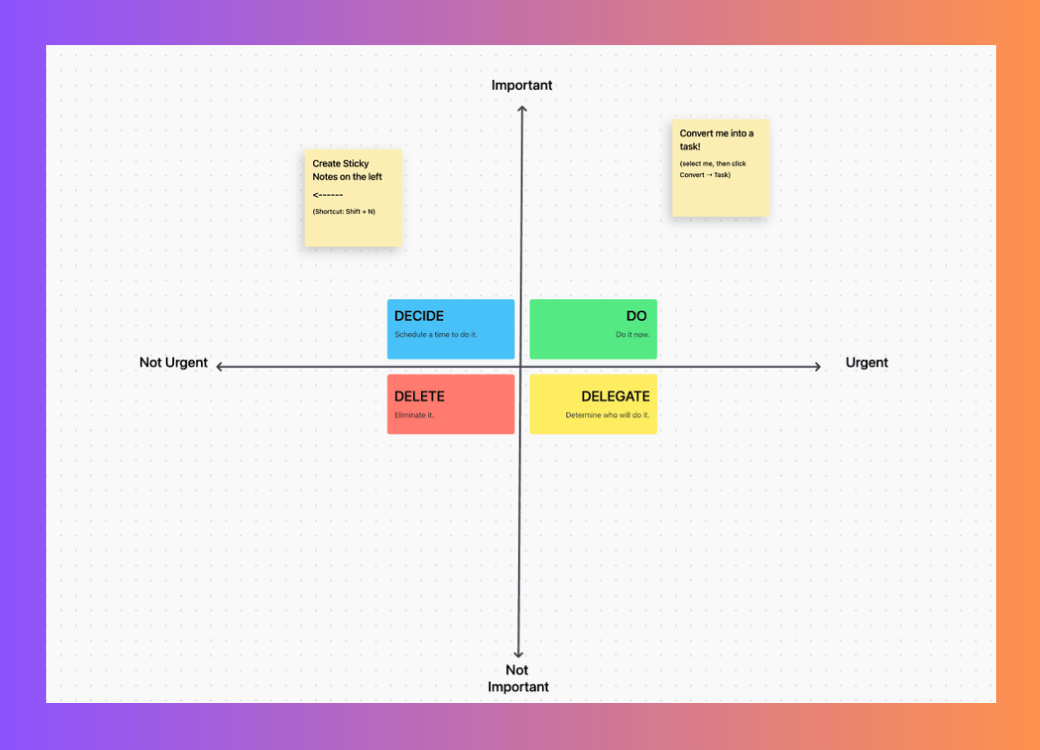
Stephen’s book takes this further with a time management formula that sorts tasks into two categories: urgent and important. It highlights that important tasks aren’t always urgent, and urgent tasks aren’t always important.
The book also explores three different generations of time management: task lists, personal organizers with deadlines, and value clarification.
Stephen emphasizes the importance of prioritizing essential, long-term goals over less important urgent tasks.
7. Deep Work by Cal Newport
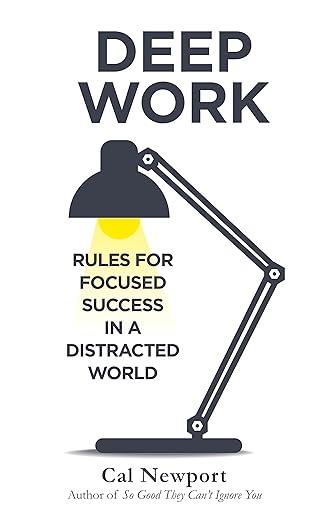
Ever get so engrossed in a task that you lose track of time, and everything around you becomes a blur?
That’s deep work!
In his book, Newport describes deep work as:
“Professional activity performed in a distraction-free concentration that pushes your cognitive capabilities to their limit. These efforts create new value, improve your skill, and are hard to replicate.”
He provides a step-by-step guide to overcoming distraction and redirecting your focus to a single task. The first part of Deep Work breaks down the concept of deep work (hyper-focused concentration) and contrasts it with shallow work (mindless and superficial concentration).
In the book’s second half, he delves into four key actions for achieving deep work, self-control, and mental discipline:
- Work deeply
- Embrace boredom
- Quit social media
- Drain the shallows (eliminate shallow tasks)
He also explores philosophical approaches to apply deep work in your professional life.
“Deep Work” is a practical guide for self-control and a focused life. It’ll help you overcome distractions, boost your focus, and channel your energy into what truly matters.
8. Essentialism by Greg McKeown
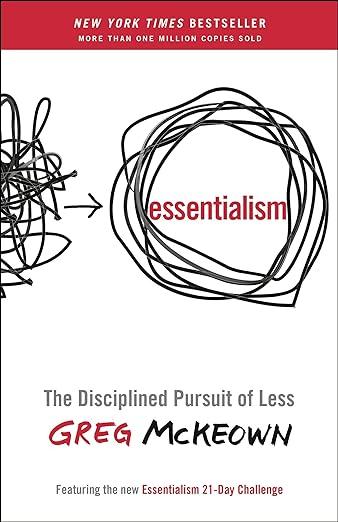
Feeling overworked and overwhelmed? Greg’s got the answers for a better work-life balance.
In his book, he teaches the art of zeroing in on what matters and ditching less important tasks. He shows how essentialism isn’t just a time-management trick but a disciplined approach to identifying the essentials and cutting out the rest.
He highlights how being more selective about what’s essential helps you regain control over your choices so you can focus your time, energy, and effort on what truly counts, making a more significant impact on your important goals and activities.
Greg talks about how essentialism is a mindset and a way of life.
Reading Essentialism will help you grasp the importance of focusing on what truly matters and making mindful decisions. You’ll discover the simple steps to explore, assess, trim the excess, and take action.
9. Thinking Fast and Slow by Daniel Kahneman
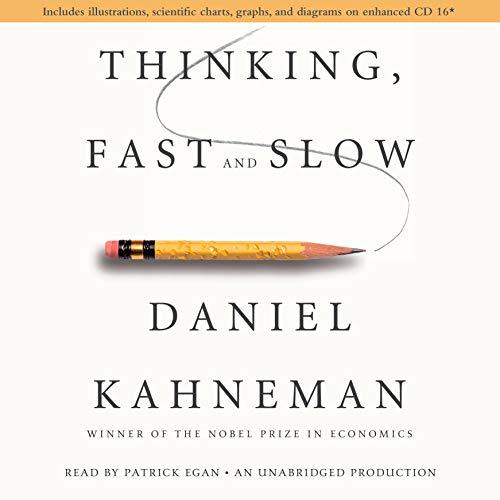
Ever wonder which part of your brain does all the thinking?
In his book, Daniel Kahneman breaks down how our minds operate. He sheds light on the two brain systems that drive human thinking. The first is quick, automatic, emotional, and subconscious, while the second is slower, more deliberate, and logical.
Kahneman uncovers when to rely on or second-guess your gut feelings by exploring human thought processes. He also shares tips on harnessing the advantages of slower thinking.
Plus, he provides insights on making more conscious decisions, helping you boost your focus on what truly matters.
10. Your Brain at Work: Strategies for Overcoming Distraction, Regaining Focus, and Working Smarter All Day Long by David Rock
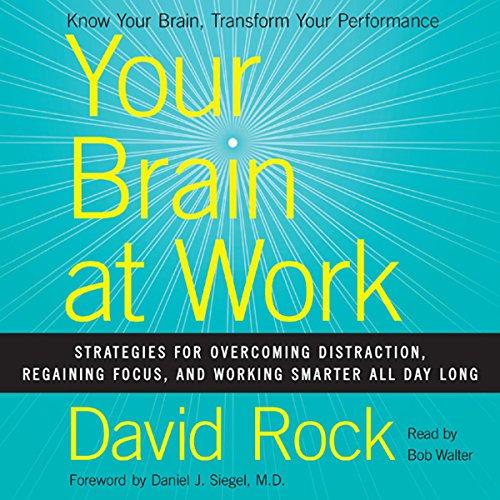
Your habits shape your brain’s potential; if you’re not mindful of them, you won’t reach your peak.
In his book, David Rock breaks down how the brain operates and offers practical advice for enhancing a focused life. He discusses how good habits can help you manage stress and boost creativity.
Here are ten tips he shares to keep your brain in top shape:
- Conserve your brainpower
- Cut distractions to stay focused
- Maintain the right level of mental alertness
- Take breaks for those “Aha” moments
- Practice mindfulness to enhance your memory and brain structure
- Use humor to reduce uncertainty and gain control
- Let go of expectations for a happier brain and good habits
- Understand how our brains thrive on social interactions and fairness
- Learn how the brain values increase in importance or status
- Understand why feedback doesn’t always do the trick
Start Focusing with ClickUp
Reading a book is pointless if you don’t put what you’ve learned into action. One smart way to make sure you follow through is by using software like ClickUp to streamline your tasks and boost your concentration.
ClickUp can help you operationalize a lot of the tactics described in these books and bake it into your routine.
ClickUp is an all-in-one project management tool that lets you handle your workflow in a single app.
Check out these ClickUp features that can enhance your focus at work and in life:
ClickUp workflows
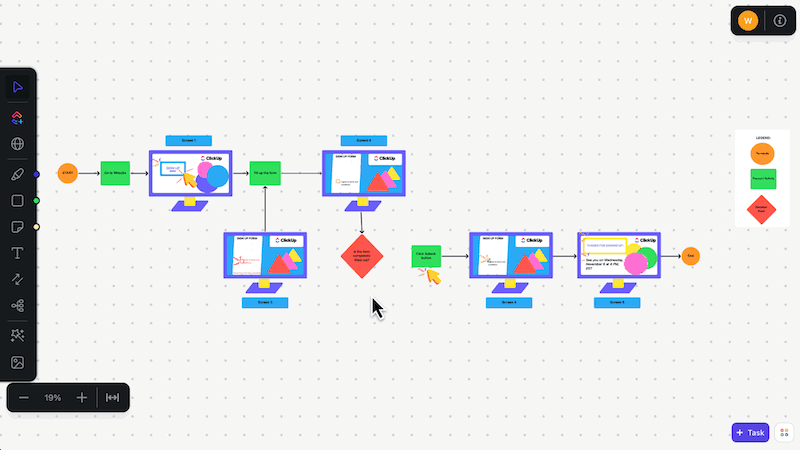
ClickUp limits context switching by bringing all your tasks into one place.
No more juggling between apps to manage your work – it’s all right here. Plus, ClickUp integrates with many other apps to improve your productivity.
📮ClickUp Insight: We recently discovered that about 33% of knowledge workers message 1 to 3 people daily to get the context they need. But what if you had all the information documented and readily available? With ClickUp Brain’s AI Knowledge Manager by your side, context switching becomes a thing of the past. Simply ask the question right from your workspace, and ClickUp Brain will pull up the information from your workspace and/or connected third-party apps!
ClickUp time blocking
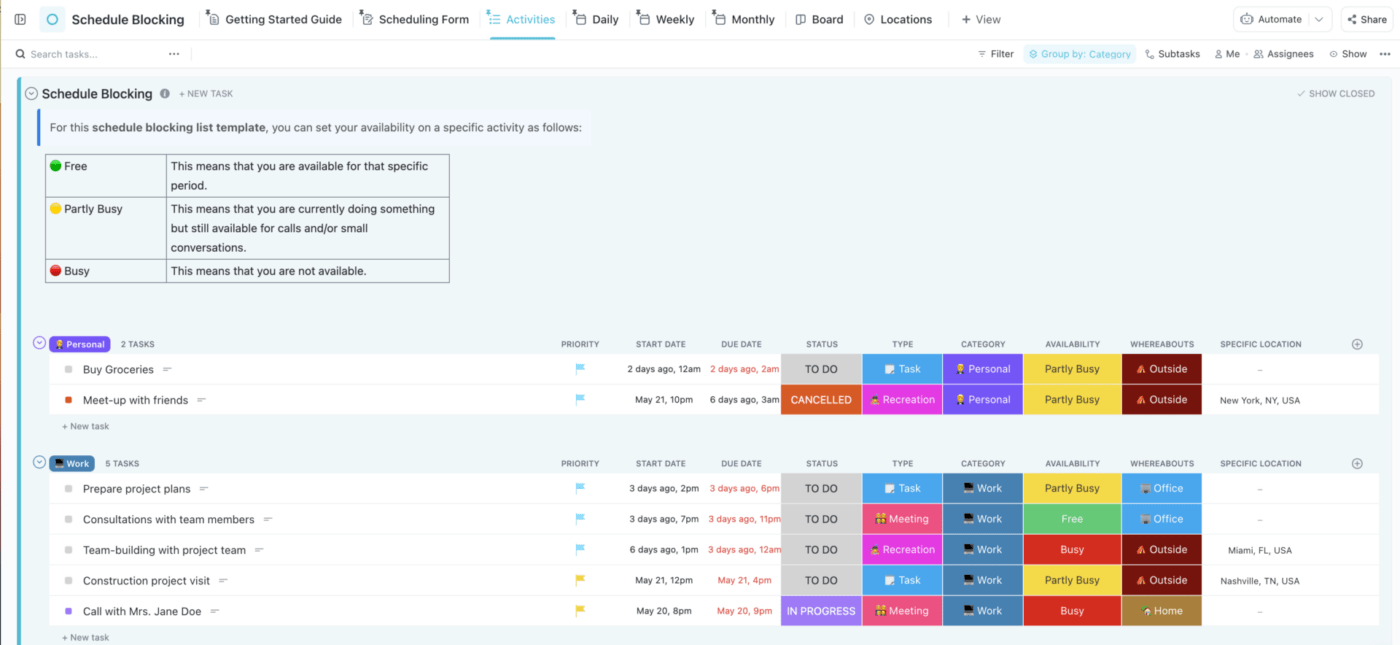
ClickUp’s Schedule Blocking Template gives you a quick and easy way to manage your schedule with time blocks.
You can assign one or more tasks to a small block of time in your day and focus on only these tasks in that window. With ClickUp, creating, editing, and viewing your time blocks is a breeze.
Follow these steps to create your time block on ClickUp:
- Create your tasks in ClickUp
- Add your task descriptions
- Add assignees or watchers
- Add ClickUp Task Priorities
- Include time estimates
- Add the start and due dates for the tasks
- Add task tags
- Add relationships and dependencies (if applicable)
- Add a checklist (if applicable)
Once your tasks are set, choose your preferred view, and you’ll have a detailed schedule at your fingertips!
ClickUp templates
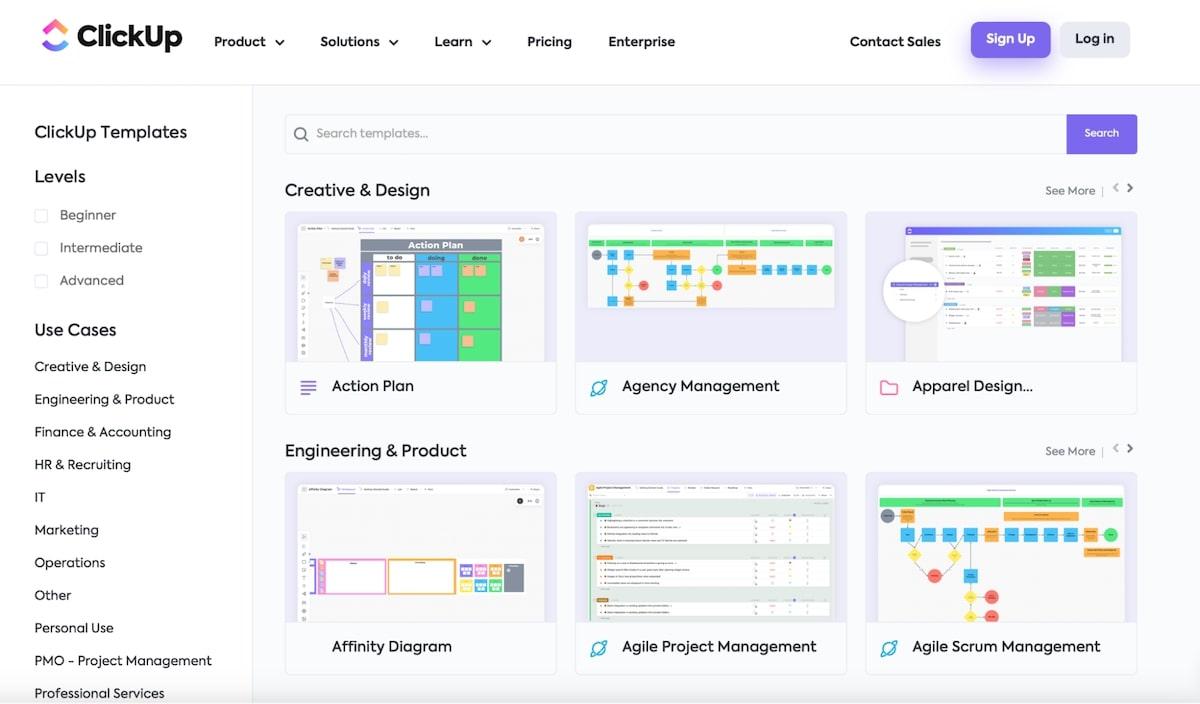
ClickUp has pre-made time-blocking templates, so you don’t have to start from scratch. Plus, you can keep tabs on your project time using ClickUp Time Tracking.
ClickUp Automation
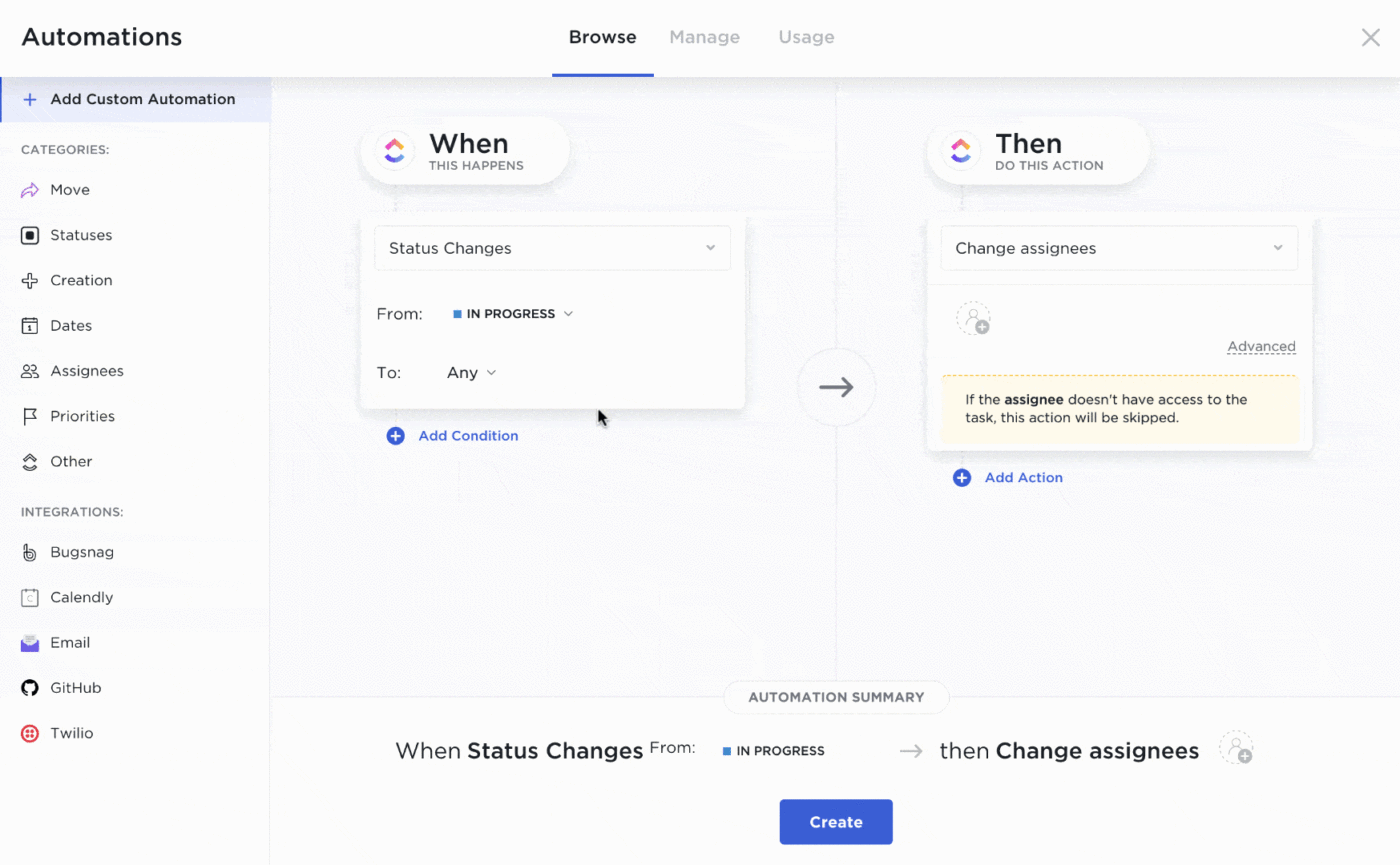
ClickUp Automation is your time-saving sidekick, slashing time-wasting tasks and repetitive actions. You can automate various things, like updating due dates for recurring tasks when the status changes.
And if you’d rather not start from scratch, ClickUp has ready-to-use automation templates at your disposal.
ClickUp to-do lists
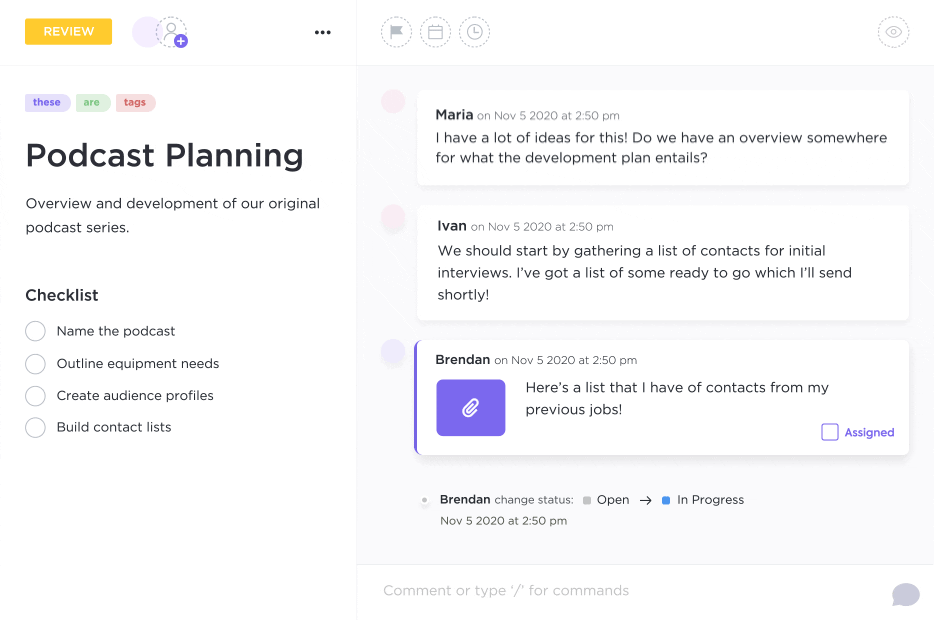
Crafting a ClickUp to-do list helps you stay organized and zero in on what matters. ClickUp offers versatile to-do lists, including daily checklists to help manage your ideas better.
ClickUp Docs

Use ClickUp Docs for in-depth note-taking that helps you focus and leads to clear, precise action items. It’s flexible, allowing you to create documents tailored to your needs.
You can throw in tables, collaborate with others, add comments, connect your docs to different workflows, and more.
ClickUp Workload View
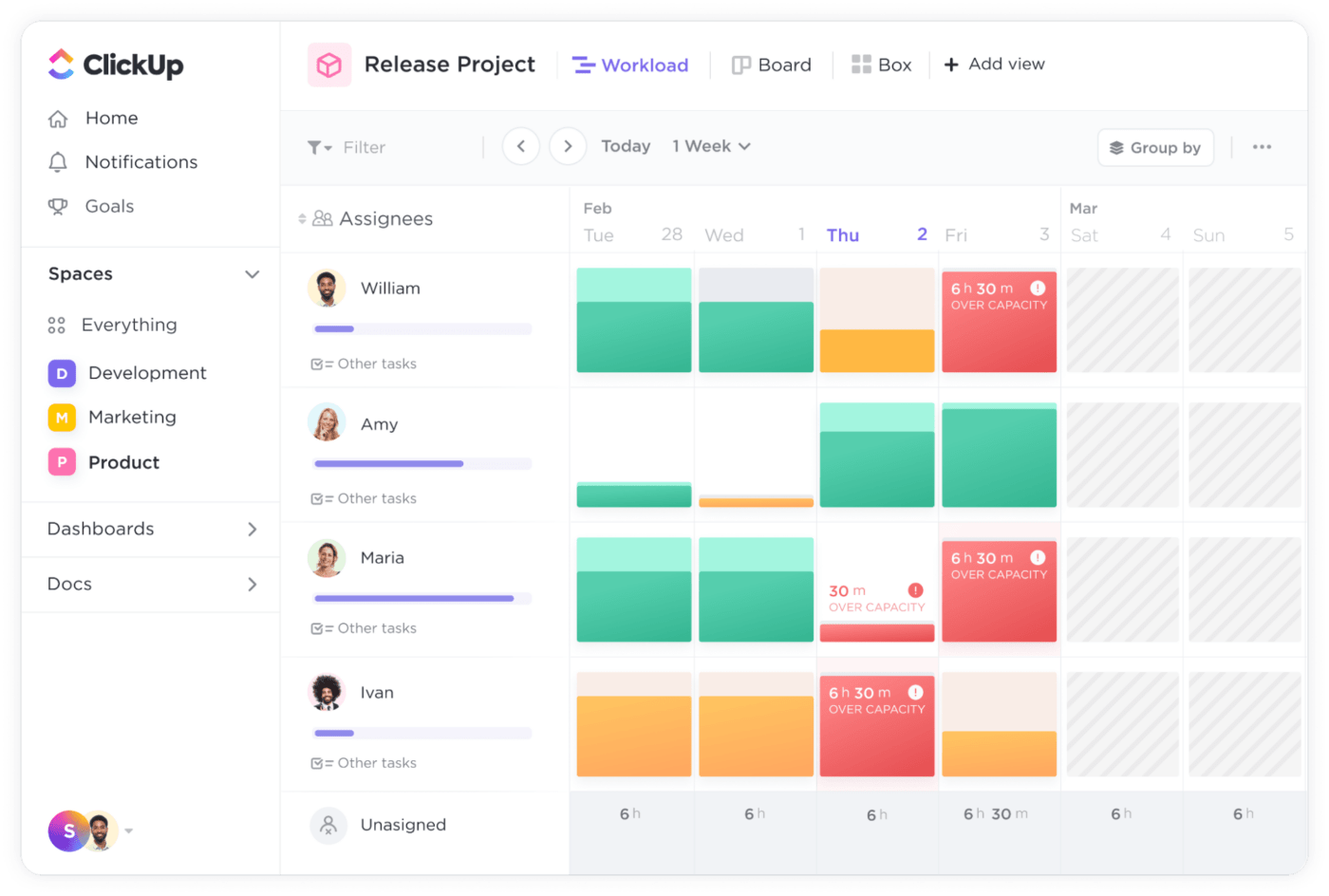
Use ClickUp Workload View for a quick, prioritized overview of your tasks. Visualizing your workload for a specific time frame helps you see what to focus on.
Take Action and Improve Your Focus
There you are! 10 incredible books to help you focus deeper and achieve more in your day.
Remember, reading is great, but it’s action that counts.
Being busy doesn’t mean you’re making progress. Despite the many distractions we experience daily, we must discipline ourselves to improve focus and concentration.
These books will be your productivity guides, helping you focus with practical tips.
Don’t forget to use our checklist template to keep track of your reading list and check off what you’ve read as you dive in!




